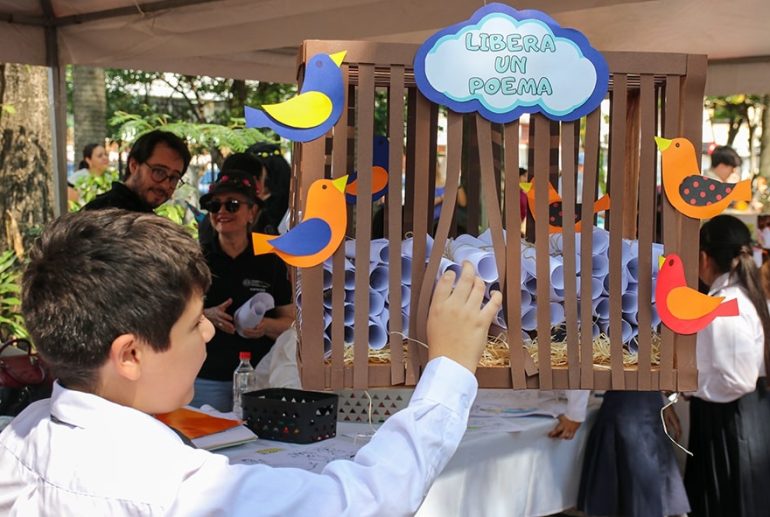The Ministry of Education and Sciences (MEC) has set an ambitious goal to double the number of classroom libraries across Paraguay by 2028, as part of the Ñe’êry programme. The project is a national initiative aimed at transforming education through reading, writing, and oral expression. The Ñe’êry (meaning “words that flow” in Guaraní) programme is led by MEC and supported by the Organisation of Ibero-American States (OEI). The initiative promotes literacy, creativity, and communication as essential tools for educational and social development.
Expanding access to classroom libraries
So far, the Ñe’êry programme has delivered 12,200 classroom libraries and plans to reach 12,600 by the end of 2025. By 2028, it aims to establish 24,000 libraries, ensuring every educational institution in the country has access to one. The initiative has also distributed 38,600 storybooks by Paraguayan authors for early education. Therefore, promoting national literature from the earliest stages of learning.
According to the programme’s director, Dr. Norma Raquel López Jara, “reading connects,” and technology plays a vital role in that connection.
“Recent experiences show that interest in reading increases significantly when digital resources such as interactive apps, audiovisual storytelling, and collaborative platforms are incorporated,” she explained during an interview with another media.
Beyond reading, the programme focuses on developing communicative and creative skills across generations. The project encourages participants to create audiovisual materials that highlight local stories and communities. “Even with a mobile phone, students can produce excellent works that narrate the life of cities, neighbourhoods, and communities, fostering intellect and oral expression,” said López Jara.
Fostering communication and creativity
By combining traditional reading with digital tools, the Ñe’êry programme encourages creativity, critical thinking, collaboration, and active participation among learners. This inclusive approach enhances both comprehension and motivation, inspiring students to engage with reading in meaningful ways. Classroom libraries transform into dynamic and interactive spaces for exploration, creation, and shared learning experiences. Ultimately, these initiatives strengthen community bonds and foster a lasting curiosity that extends beyond the classroom.
In a related effort to strengthen education and knowledge access, Paraguay’s BECAL Scholarship Programme recently expanded its partnerships with two additional universities.


